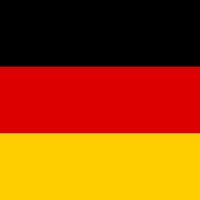The German balance of payments in September 2022
Current account again with a clear surplus
The German current account recorded a surplus of 14.8 in September 2022Billion €. After the low result of 0.9Billion €in the previous month, the positive balance was thus significantly higher again. This was due to a sharp increase in the asset balance in trade in goods and a significant turnaround in the area of "invisible" current transactions, which include primary and secondary income in addition to services.
In trade in goods, the positive balance widened by 9.7 in the month under review.Billion €to 12.6Billion €, as revenue expanded more than expenditure.
In the case of "invisible" current transactions, the deficit of 2.0Billion €in August in a surplus of 2.2Billion €. Net receipts from primary income increased by 1.0Billion€ to 11,7Billion€. This was mainly due to lower incomes; the decline in income from investment fund shares, which had risen in the previous month, more than offset the increase in residents' dividend income from securities exposures abroad. However, the deficit in the services balance fell even more sharply by €3.6 billion to €5.3 billion. Here, revenues expanded, mainly due to higher revenues from fees for the use of intellectual property and other business-related services. In addition, there were lower expenses. This was mainly due to lower expenses for transport services and travel. In addition, the deficit in secondary income fell by €1.5 billion to €4.2 billion. Revenues increased mainly due to higher government revenues from current taxes on income and wealth. In addition, expenses decreased. This was due in particular to lower government expenditure on current transmissions within the framework of international cooperation.
Net capital imports in securities transactions
In September 2022, financial markets were dominated by expected monetary policy tightening worldwide. Germany's cross-border securities recorded net capital imports of 8.4Billion €(after 24.4Billion €in August). Domestic investors sold foreign securities on balance for 8.7Billion€. They mainly issued bonds (5.7Billion€), in particular securities denominated in foreign currency. However, they also divested equities (€1.2 billion), investment certificates (€1.0 billion) and money market paper (€0.8 billion). Foreign investors kept their holdings of German securities almost constant (€-0.3 billion). However, they shifted between the individual instruments, in some cases significantly. They reduced the stock of debt securities issued in Germany (€11.5 billion). In doing so, they divested themselves of public bonds and at the same time acquired private securities and money market paper (€3.4 billion). Above all, however, they included domestic equities (€11.1 billion) in their portfolios.
Financial derivatives transactions closed in September with cash outflows of 8.3Billion €(August: 0.7Billion €).
In the area of direct investment, net capital exports amounted to 2.8% in September.Billion €(August: 13.0Billion €). The decisive factor was that foreign companies reduced their involvement in Germany somewhat more strongly (6.5Billion€) as a local company its commitment abroad (3.7Billion€). As a result, foreign companies reduced intragroup loans to domestic affiliates (€8.6 billion). In doing so, they reduced the funds granted through financial credits, but allocated more funds through trade credits. In addition, they increased their equity capital in affiliated companies in Germany (€2.1 billion). Companies domiciled in Germany reduced both their cross-border equity (€2.3 billion) and loans to foreign affiliates (€1.4 billion). In doing so, they reduced their exposure through financial credits, but expanded the funds provided through trade credits.
Other statistically recorded capital movements, which include financial and trade credits (other than direct investment), bank deposits and other fixed assets, recorded net capital imports of 10.8% in September.Billion €(after net capital exports of 41.6Billion €in August). General government transactions (10.0Billion€) as well as companies and individuals (3.0Billion€) resulted in capital imports. Monetary financial institutions (excluding the Bundesbank) also recorded net capital imports (€34.7 billion). By contrast, net capital exports via the Bundesbank's accounts amounted to €37.0 billion. The Bundesbank's net foreign loans and advances from cash and deposits rose by €22.9 billion. This increase was mainly due to higherTARGET2receivables (21.6Billion€).
At the same time, the Bundesbank's foreign liabilities fell. This was mainly due to lower deposits from non-euro area residents.
The Bundesbank's currency reserves rose by 1.2 in September – calculated at transaction values.Billion €.






















































First, please LoginComment After ~